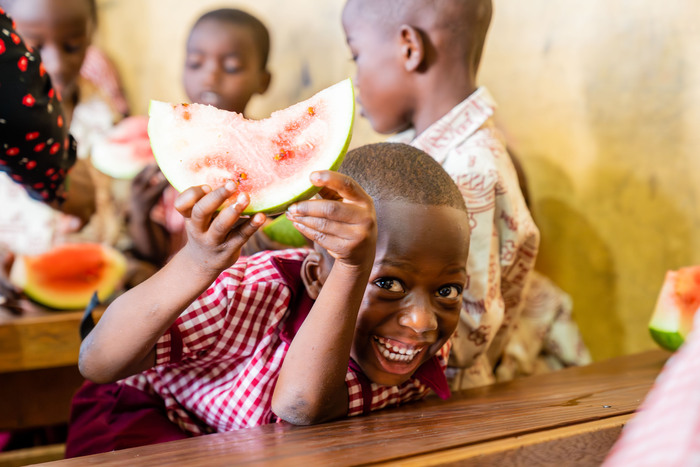
Bridging the Gap: How Food Banks Can Help School Meal Programs Serve More Fresh, Safe, and Sustainable Food
A Global Child Nutrition Foundation blog based on an interview with Elijah Amoo Addo, Founder of Food for All Africa conducted by Emily Fredenberg, Senior Program Officer for the Global Child Nutrition Foundation.
Across Africa and around the world, school meal programs face an ongoing balancing act of ensuring food safety and quality while managing limited budgets. These constraints can make it difficult to introduce fresh fruits and vegetables into school meals, despite their crucial role in children’s nutrition and development. At the same time, nearly a third of the food produced globally is lost or wasted, a significant amount of which is fresh and highly nutritious and grown near communities most in need. In certain contexts, food banks may be well positioned to facilitate collaboration between farms, private sector entities, or other partners and schools while maintaining government standards. Food banks can be particularly helpful in the collection and distribution of fresh produce that can be logistically difficult for school cooks to manage.
Emily Fredenberg, Senior Program Officer for the Global Child Nutrition Foundation sat down with Elijah Amoo Addo, Founder of Food for All Africa, West Africa’s first and largest food bank, to learn more about how his food bank is working to reduce food losses and get fresh food to schools.

A child eating fresh watermelon, part of Food for All Africa’s school meal program in Ghana.
From Surplus to School Meals: A Vision for Fresh Food Access
Since its founding in 2015, Food for All Africa has been on the forefront of fighting food waste and hunger within vulnerable communities throughout Ghana. A year after its launch, the food bank began serving school meals to students in 16 schools. Today, they reach over 5,000 children in 25 schools across the country. According to the 2024 Global Survey of School Meal Programs, the national Ghana School Feeding Programme is reaching 39% of school-aged children in the country. Food for All Africa is helping to increase the coverage.
A core part of Food for All Africa’s school feeding initiative is the inclusion of fresh produce sourced from local smallholder farmers. “Many smallholder farmers we work with don’t have access to cold storage. Anything that can’t be sold shortly after harvest sadly too often goes to waste. On top of that, there is a fair amount that is never even harvested- crops that won’t meet market standards but are perfectly edible”, noted Elijah. “With the support of Food for All Africa, we take the produce farmers know they can’t sell at market but are still edible, and leverage our cold storage facilities and transportation systems to distribute it to schools. They are happy knowing their food won’t go to waste and will feed hungry children, and in return their farm is supported. It’s a win-win situation.”
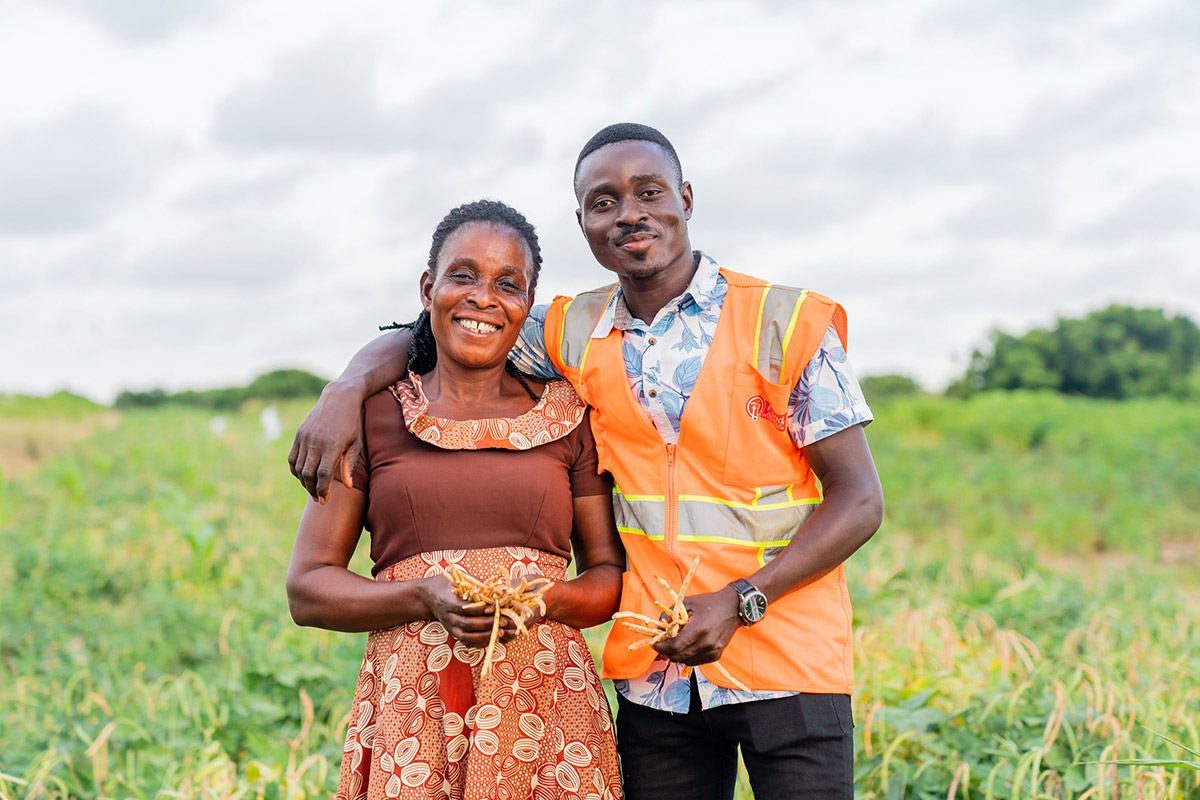
A Ghanaian smallholder farmer and Food for All Africa worker harvesting beans to be disturbed at schools.
Produce collected from farms is transported to one of two cold storage warehouses for cleaning and storage. Baskets of fresh produce are then delivered to schools each day (all participating schools are less than 2 hours’ drive from a warehouse). Cooks at participating schools receive food safety training to ensure they have the skills to safely prepare the produce.
Whatever is not added to the meals that day, children are able to take home to share with their families. This system ensures freshness, reduces waste, and provides consistent access to nutritious food, all while keeping transport and storage costs manageable. “A lot of children we support weren’t eating fresh fruits and vegetables on a regular basis, as they are expensive. Our work has helped to improve their nutrition while also helping them to stay in school. We also help them to understand the importance of reducing food waste while supporting their community,” Elijah added.
The Mentor, the Mission, and the Birth of Ghana’s School Meal Program
This program vision was greatly influenced by Elijah’s mentor, Dr. Kwame Amoako Tuffour, one of the initial leaders of Ghana’s national school meal program. When Dr. Kwame Amoako Tuffour’s party won the national election in 2006, he was asked by the party which position in the government’s cabinet he would be interested in occupying. Before answering, he went back to his village, and on his way met a young boy selling avocados on the side of the road during school hours. When asked why the boy wasn’t in school, he explained that his mother had instructed him to skip school to sell the avocados, as by the end of the school day they would be too ripe to sell. Dr. Kwame Amoako Tuffour asked why the boy didn’t bring the avocados to school; he explained that it would require transport and human resources he didn’t have.
Dr. Kwame Amoako Tuffour’s vision was now clear: Ghana should prioritize a school meal program, and the program needed to support children like the boy he had met on the side of the road and smallholder farmers struggling to prioritize their children’s education. He strongly felt private sector companies, including farms, would be more willing to support a school meal program if a reputable charitable organization that already works with vulnerable communities, such as a food bank, would be leading the food distribution. His fellow cabinet members did not agree to this out-of-the-box approach, but he did go on to help establish Ghana’s national school feeding program. Later he provided key guidance to Elijah as Food for All Africa launched its school feeding initiative.

Dr. Kwame Amoako Tuffour (center left) and Elijah Amoo Addo (center right) at Food for All Africa’s Blue Band Nutrition4All Feast Day, which provided meals to thousands of children in Accra, Ghana, in celebration of World Food Day 2017.
Food Banks: A Bridge Between Private Sector and Government
Private sector partnerships are a critical part of strengthening school meal systems in countries all over the world. By acting as a bridge between private donors and public programs, food banks like Food for All Africa create practical pathways for businesses to contribute surplus food, used equipment, financial support, and more. Achieving this requires close government collaboration with food banks to design smart policies that enable food recovery, support smallholder farmers, and reduce risks for private sector involvement. In low resource environments in particular, this can become a capacity building tool for school meal programs to put systems in place for integrating fresh foods and new partners into their supply chain.
Last year, Food for All Africa hosted the African Food Bank Conference, convening food banks, private sector stakeholders and government. “The interest from the private sector to learn more about supporting school meals was incredible. But right now, the system in Ghana doesn’t make it easy for the private sector to contribute in a major way,” said Elijah. “We need better food donation policies that address liability and create incentives for donating food to schools before it goes to waste. We also need more intentional collaboration between the private sector and government, and food banks can play an important role in fostering those connections.”
Elijah has gathered inspiration for how food banks can better support school feeding initiatives by attending the Global Child Nutrition Forum, both in 2024 in Japan and in 2022 in Benin. The Forum, organized by the Global Child Nutrition Foundation, unites governments, the private sector, international organizations, non-profits, and academic institutions to share knowledge and strategies for improving school feeding worldwide.
As the Food for All Africa organization celebrates its 10th anniversary, it has set a bold five-year goal to ensure that 90% of all recovered food benefits school meal programs. With continued support, Food for All Africa also aims to serve as a model for Africa and beyond for how food banks can strengthen school feeding through infrastructure, innovation, and cross-sector collaboration.
About the Organizations
Food For All Africa
Food for All Africa is a registered non-profit organization that operates West Africa’s first and largest food bank in Ghana. We are fueled by a deep-seated passion for fighting hunger and reducing food waste, and we believe that the key to making a meaningful impact lies at the intersection of technology, diversity, and innovation. Learn more at foodforallafrica.com.
GCNF
The Global Child Nutrition Foundation (GCNF) is a US-based 501(c)3 organization founded in 2006 that envisions a future where school meals sustainably nourish all children and help them, their families, communities, and nations to thrive. GCNF provides governments and their partners with knowledge, tools, and connections so all children can access high-quality school meal programs that contribute to national educational, agricultural, economic, social protection, health and nutrition goals.


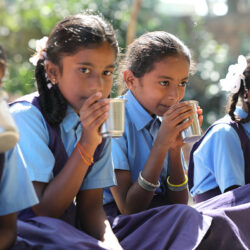



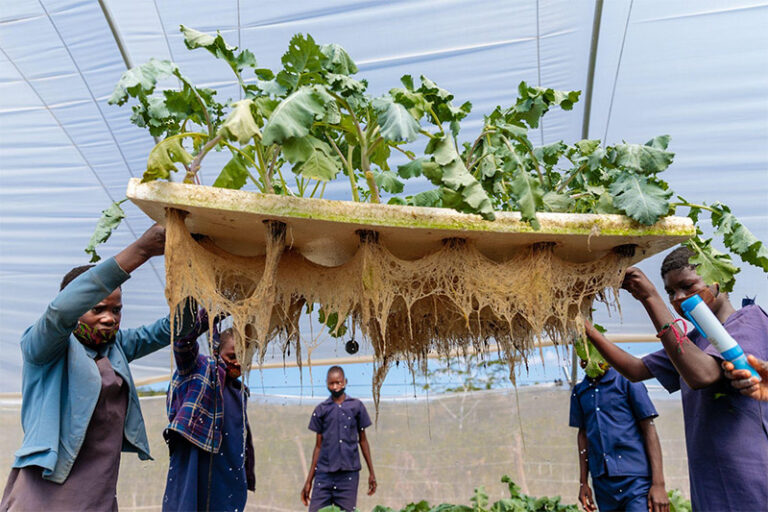
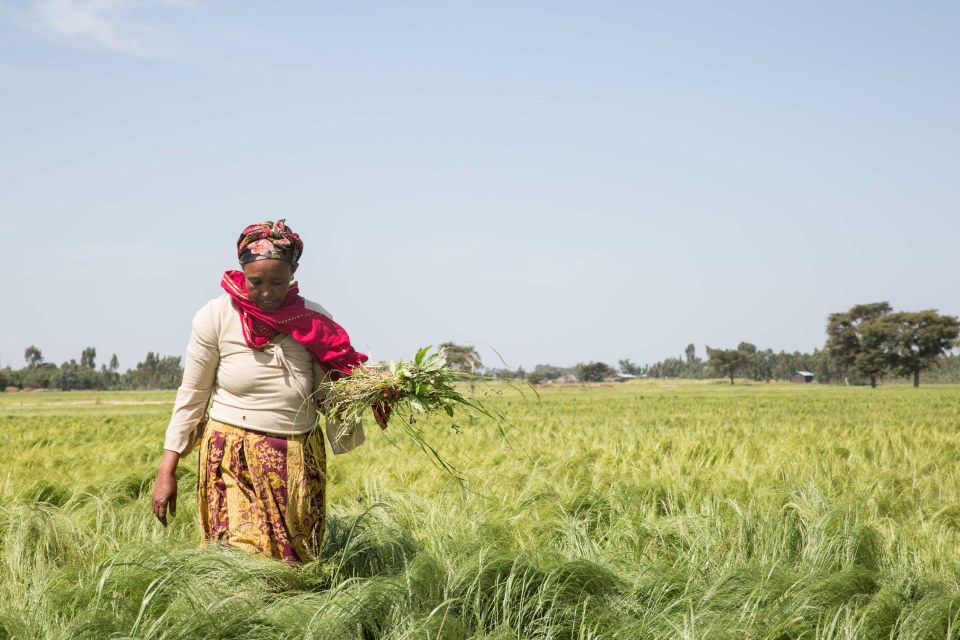
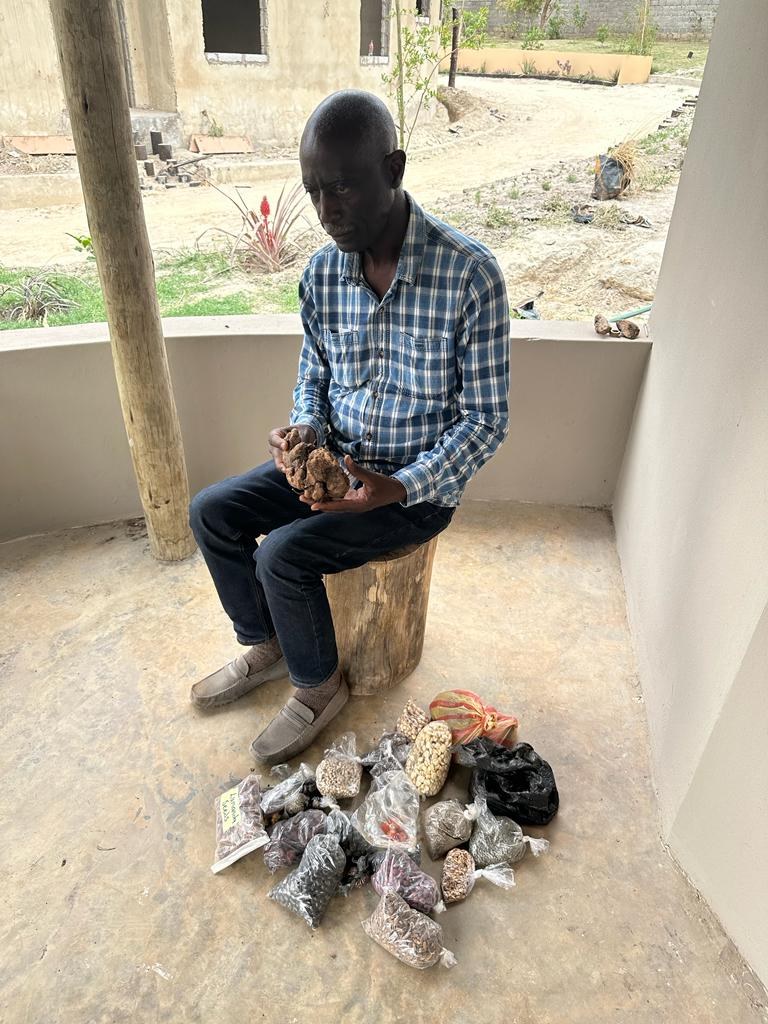
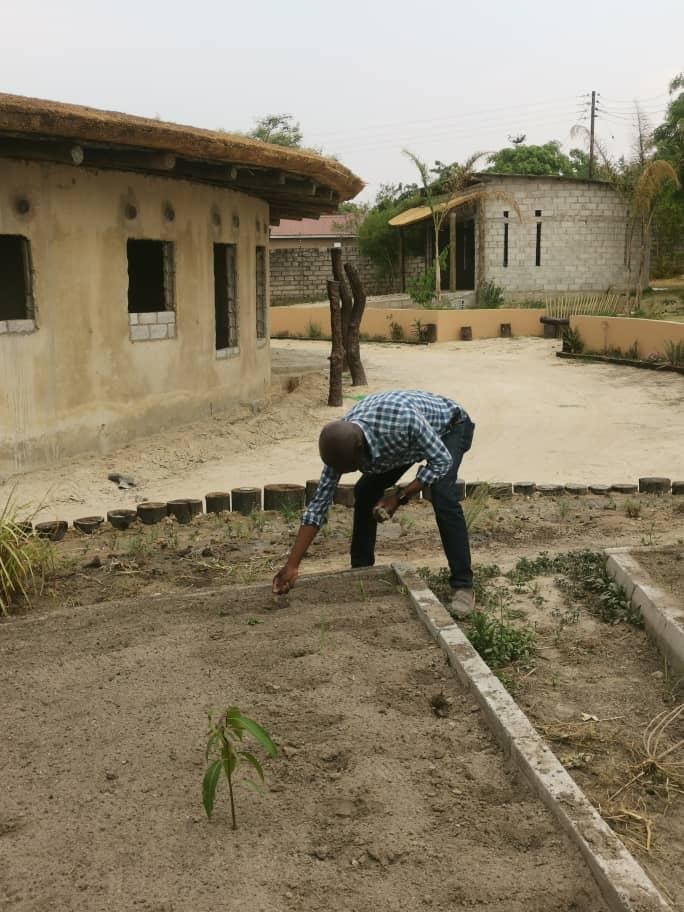
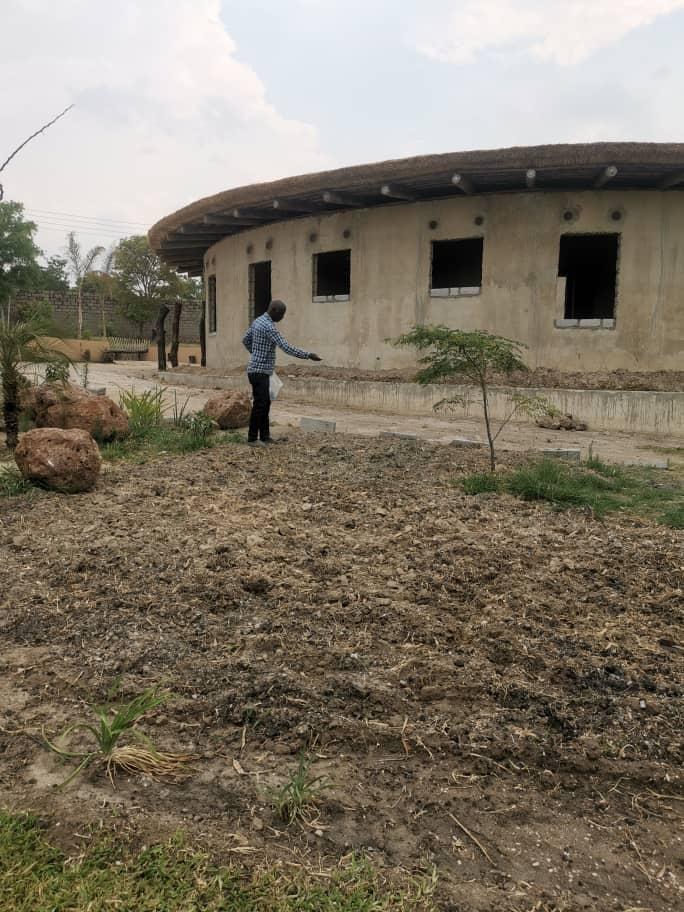
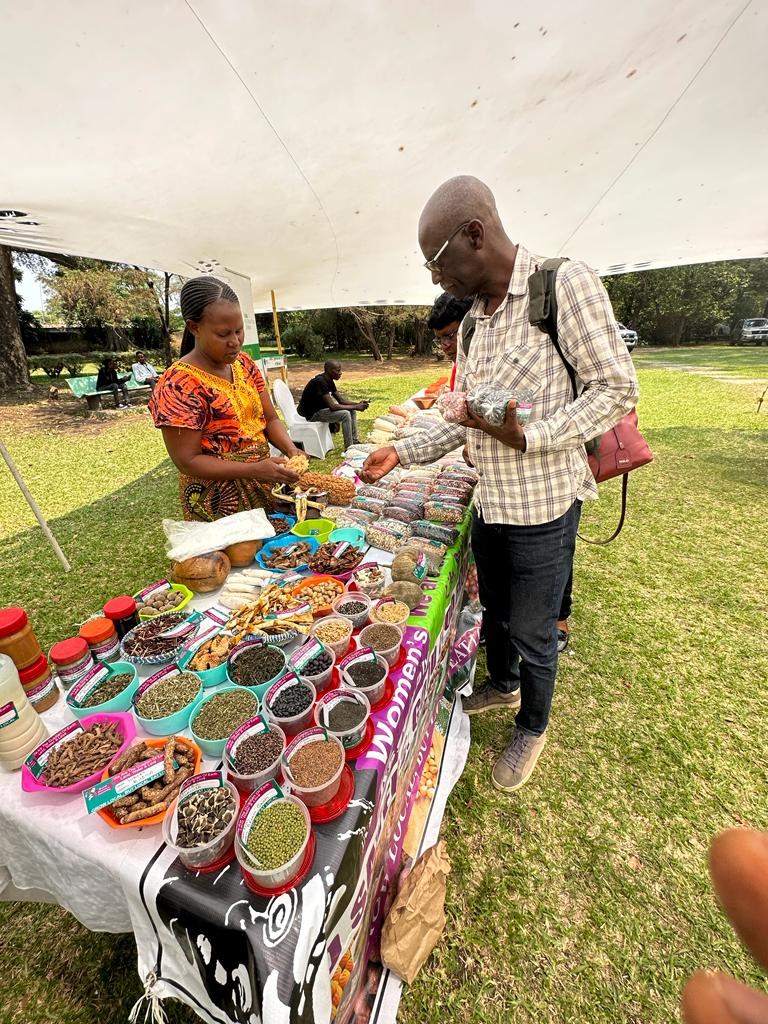
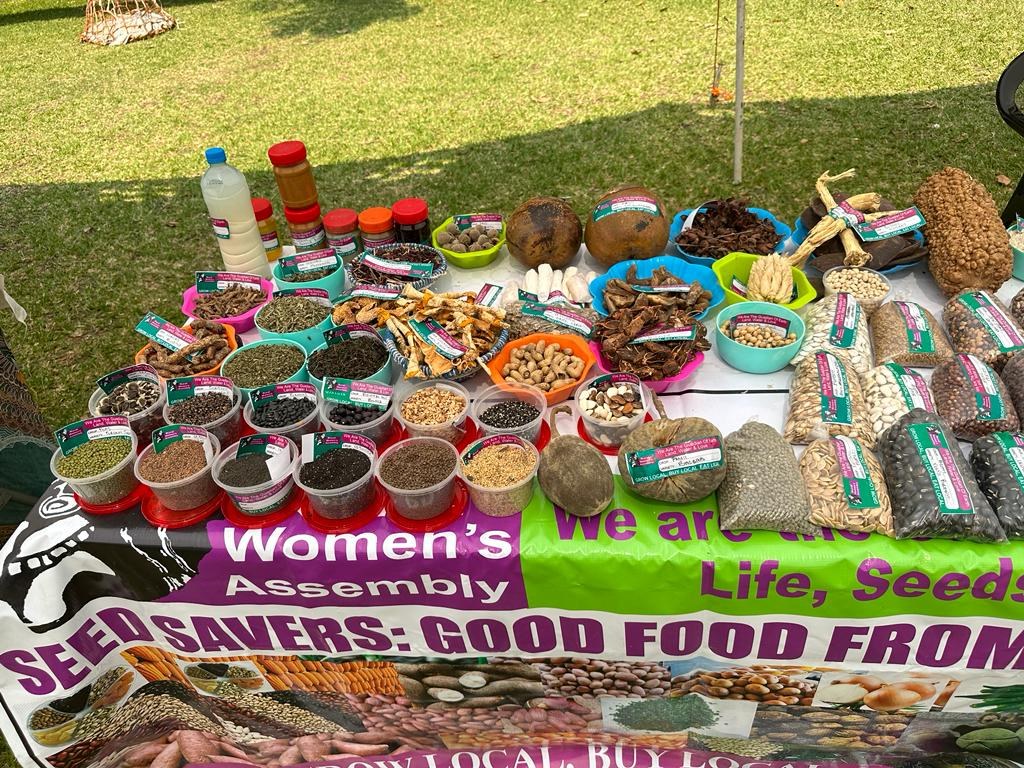
No comment yet, add your voice below!